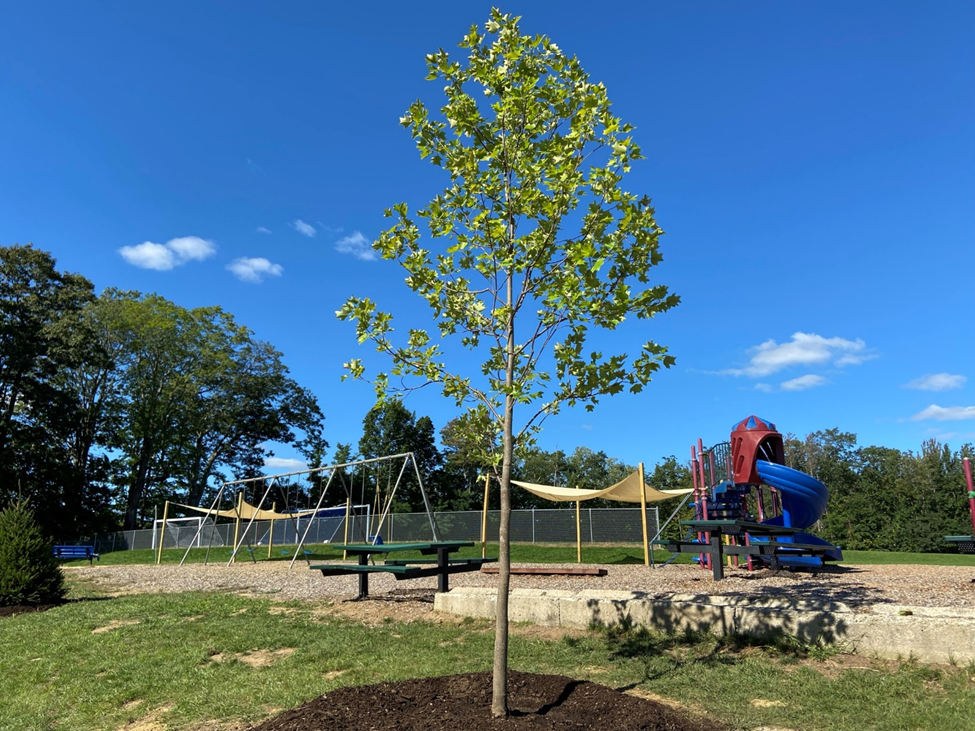The Value of New Hampshire’s Urban Trees

This tulip-poplar (Liriodendron tulipifera L.), planted at a New Hampshire school in September 2021 by UNH Extension and NH Division of Forests and Lands foresters will provide environmental and economic benefits for New Hampshire’s residents.
Forestland covers about 82% – or 4.7 million acres – of New Hampshire1. As the second most forested state in the nation, our forest products industry supports over 12,800 jobs and $2.5 billion in sales or output (total value of all goods and services) annually2. Add in forest-based recreation and the figures start to get really big! But what impacts do our urban trees have on New Hampshire’s economy?
The University of Nebraska – Lincoln Bureau of Business Research recently conducted a study,3 sponsored by the Arbor Day Foundation and the USDA Forest Service, that found New Hampshire’s urban forestry sector supports nearly 3,400 jobs with an annual sales and employment output of $444 million. Urban trees sequester carbon, remove air pollution and reduce stormwater runoff, which they quantified to be a cumulative $815 million in annual environmental benefits to New Hampshire. As a result, they estimate urban trees add $356 million to property values across the state. Visit the Arbor Day Foundation website to learn more about the benefits of urban trees and the Economics of Urban Forestry in New Hampshire.
So, the next time you plant a tree at your home, at a school or in your community, you can feel good knowing that you are supporting both New Hampshire’s environment and economy. Sounds like a great investment to me!
If you need help with the trees on your property, contact your County Forester.
Have a question about your woods? Contact your Extension County Forester today!
Do you love learning about stuff like this? Subscribe to the NH Woods & Wildlife Newsletter.
A quarterly newsletter providing private woodlot owners in New Hampshire with woodlot management news, pest updates, resources, and more.
1 New Hampshire Forest Action Plan – 2020. Department of Natural and Cultural Resources, Division of Forests and Lands. https://www.nh.gov/nhdfl/documents/nh-stateforestactionplan_2020.pdf
2 Public Sector Consultants and Andrew Fast. 2020. Forest Products Industries’ Economic Contributions: New Hampshire. Lansing: Public Sector Consultants. http://www.northeasternforests.org/app/webroot/uploads/files/NH%20Forest%20Products%20Industry%20Report.pdf
3 The Economic Footprint and Quality-of-Life Benefits of Urban Forestry in the United States. 2021. University of Nebraska – Lincoln Bureau of Business Research. https://www.arborday.org/urban-forestry-economic/downloads/complete-report-findings.pdf
